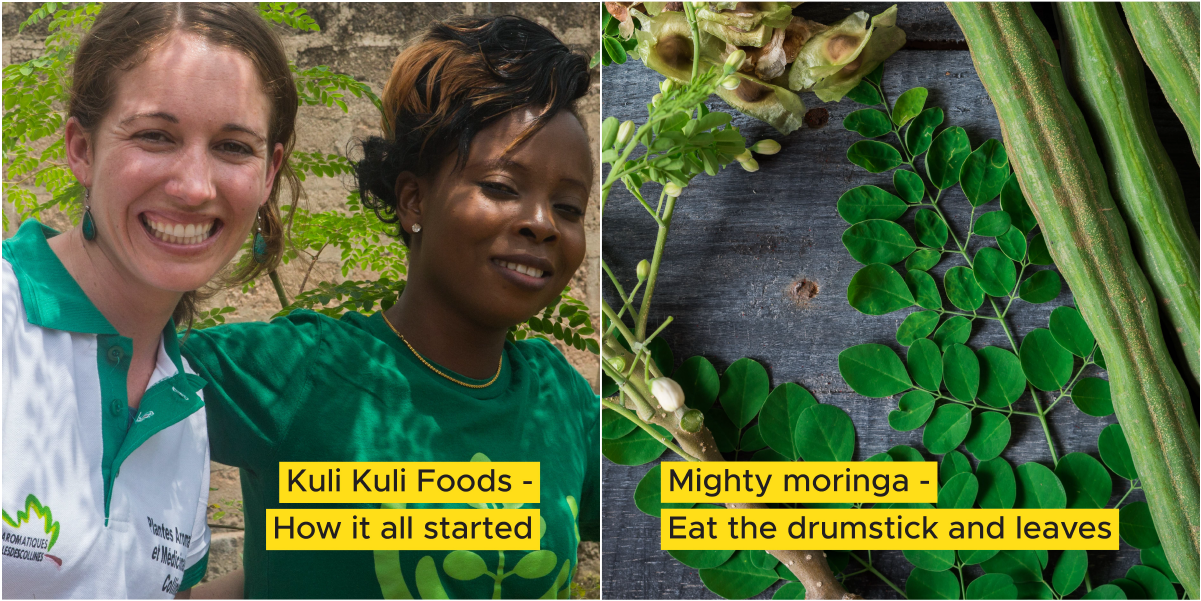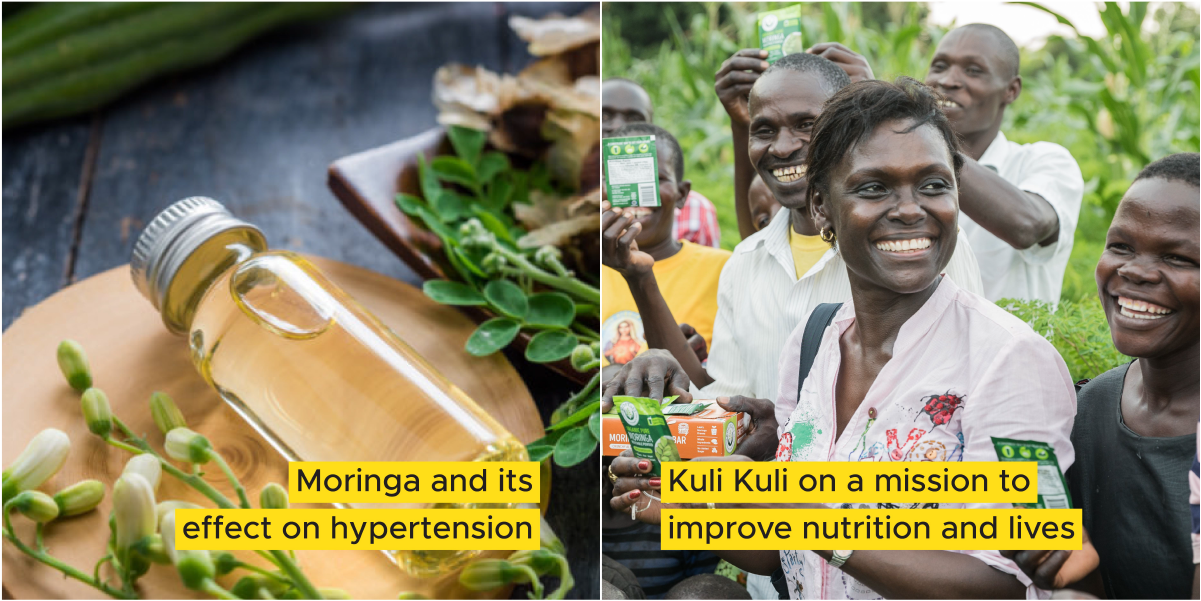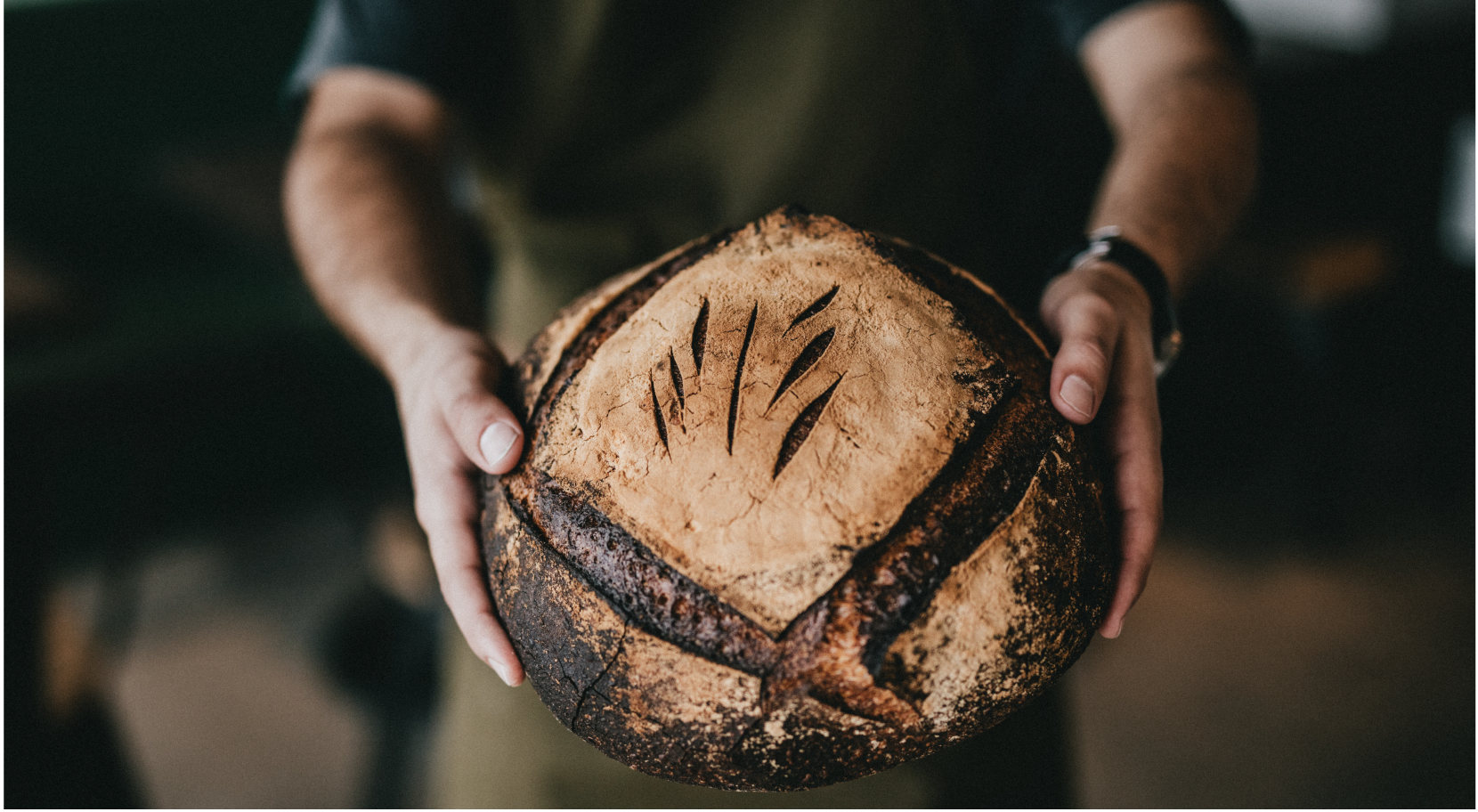Moringa (drumstick) and the story of Kuli Kuli
Published: 25-Jun-2020 Category: Food Bulletin Newsletter
By Ashok Vasudevan
Moringa (drumstick) and the story of Kuli Kuli
This goal of this newsletter has always been to empower people to eat right for their wellness; to “pay the farmer not the pharmacy” as we say. From time to time, we also want to feature how game-changing entrepreneurs are rewriting the story of our relationship with food.
Today, we invite you to explore Kuli Kuli Foods, a California-based food company and how they are changing lives with, and through moringa.

Kuli Kuli - how it all started
Kuli Kuli’s founder, Lisa Curtis, first tried moringa while serving as a Peace Corps volunteer in a small village in Niger. As a vegetarian, she ate mostly rice and millet which left her feeling weak. The local women heard about her fatigue and pulled the leaves off a nearby moringa tree, mixing it with a popular peanut snack called “kuli-kuli”. Lisa ate the moringa snack everyday and found her energy return. She shortly founded Kuli Kuli to partner with women in West Africa to bring high quality moringa to a wider audience in the US, while also helping these women earn a sustainable livelihood.
Mighty Moringa: Eat the vegetable (drumstick) and its leaves (a form of spinach)
Moringa is a treasure house of essential nutrients that improve immunity. It has long been known to be an antifungal, anti-viral, antidepressant and anti-inflammatory agent. The leaves and the vegetables are both nutrient rich, and when dried & powdered the nutrient density skyrockets. Gram per gram, moringa leaves have 25x the iron content of spinach, 10x the vitamin A content of carrots, 15x the potassium of bananas and 17x the calcium of milk.

Effect on hypertension
One cause of high blood pressure is an increase of reactive oxygen species (ROS) in the blood that can cause an inflammatory response which constricts blood vessels thus increasing blood pressure. Moringa leaves contain several bioactive compounds including phenolic acids (gallic & ferulic acid) and flavonoids (such as quercetin, catechin, and epicatechin). These bioactive compounds have antioxidant properties that directly counter this oxidative stress. Regular consumption of moringa leaves has been shown to have a significant reduction in blood pressure in test subjects.
A mission to improve nutrition and lives
Moringa is a tropical tree that requires little water, and can help restore degraded soil, making it an excellent crop for farmers looking to supplement their income. Kuli Kuli partners directly with small family farmers and women’s cooperatives to help them scale, while providing ongoing technical support. Their guarantee to purchase from these farmer networks has enriched the lives of more than 3200 farmers to date, and planted more than 24.6 million moringa trees!
To learn more about this company, and for some novel recipe inspiration, visit kulikulifoods.com

Today, we invite you to explore Kuli Kuli Foods, a California-based food company and how they are changing lives with, and through moringa.

Kuli Kuli - how it all started
Kuli Kuli’s founder, Lisa Curtis, first tried moringa while serving as a Peace Corps volunteer in a small village in Niger. As a vegetarian, she ate mostly rice and millet which left her feeling weak. The local women heard about her fatigue and pulled the leaves off a nearby moringa tree, mixing it with a popular peanut snack called “kuli-kuli”. Lisa ate the moringa snack everyday and found her energy return. She shortly founded Kuli Kuli to partner with women in West Africa to bring high quality moringa to a wider audience in the US, while also helping these women earn a sustainable livelihood.
Mighty Moringa: Eat the vegetable (drumstick) and its leaves (a form of spinach)
Moringa is a treasure house of essential nutrients that improve immunity. It has long been known to be an antifungal, anti-viral, antidepressant and anti-inflammatory agent. The leaves and the vegetables are both nutrient rich, and when dried & powdered the nutrient density skyrockets. Gram per gram, moringa leaves have 25x the iron content of spinach, 10x the vitamin A content of carrots, 15x the potassium of bananas and 17x the calcium of milk.

Effect on hypertension
One cause of high blood pressure is an increase of reactive oxygen species (ROS) in the blood that can cause an inflammatory response which constricts blood vessels thus increasing blood pressure. Moringa leaves contain several bioactive compounds including phenolic acids (gallic & ferulic acid) and flavonoids (such as quercetin, catechin, and epicatechin). These bioactive compounds have antioxidant properties that directly counter this oxidative stress. Regular consumption of moringa leaves has been shown to have a significant reduction in blood pressure in test subjects.
A mission to improve nutrition and lives
Moringa is a tropical tree that requires little water, and can help restore degraded soil, making it an excellent crop for farmers looking to supplement their income. Kuli Kuli partners directly with small family farmers and women’s cooperatives to help them scale, while providing ongoing technical support. Their guarantee to purchase from these farmer networks has enriched the lives of more than 3200 farmers to date, and planted more than 24.6 million moringa trees!
To learn more about this company, and for some novel recipe inspiration, visit kulikulifoods.com


